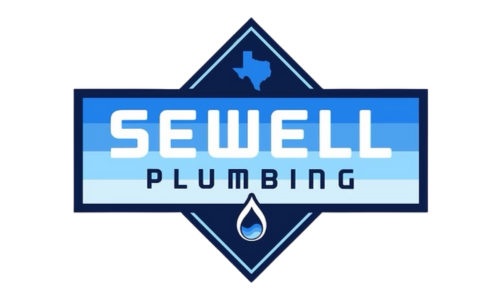Introduction: Plumbing valves play a crucial role in every household’s plumbing system. These components control the flow of water, ensuring it moves efficiently and safely through your pipes. Whether you’re dealing with a simple faucet or a complex irrigation system, understanding the types and uses of plumbing valves can help you maintain your plumbing system more effectively. In McKinney, Texas, where homes and businesses alike depend on reliable plumbing, this knowledge is even more valuable.
Key Takeaway: Plumbing valves come in a variety of types, each with its unique function, and choosing the right valve for the job is critical to maintaining an efficient and leak-free system.
Table Of Contents
Understanding Plumbing Valves
Plumbing valves serve as essential control points within any plumbing system. Whether you’re isolating a section for repairs or managing water pressure, the right valve makes all the difference. The most common types include gate valves, ball valves, and check valves, each serving a specific purpose depending on the plumbing setup. By knowing which valve to use and where, you can avoid costly repairs and keep your system running smoothly.
The Role of Gate Valves in Plumbing Systems
Gate valves are widely used in plumbing systems because they can either fully open or close a water line. They are especially useful in situations where you need to stop water flow entirely, such as during maintenance or repairs. Gate valves are designed to remain closed for long periods, making them ideal for emergency shut-offs or isolation points in your home. However, they should not be used to regulate water flow, as this can cause damage over time. For residents in McKinney, Texas, with larger properties, gate valves are often installed in main water lines to control water to different zones, such as sprinkler systems or outbuildings. They are also commonly found in utility rooms or near water heaters.
Ball Valves: A Reliable Choice for Water Flow Control
Ball valves are another key player in the world of plumbing. Unlike gate valves, ball valves can regulate water flow, allowing for precise control in areas where you might want to adjust the flow. The valve consists of a spherical ball with a hole in the center. When the handle is turned, the hole aligns with the pipe to allow water through. These valves are durable and easy to use, and they provide a strong seal even after years of non-use. Homeowners often find ball valves near appliances like washing machines or dishwashers, where turning the water on and off frequently is necessary. If you’re considering an upgrade to your plumbing system, ball valves are an excellent choice for both their reliability and longevity.
Check Valves: Protecting Your Plumbing System
A check valve’s primary purpose is to ensure that water flows in only one direction, preventing backflow that could damage your plumbing system or cause contamination. In McKinney, Texas, where water quality and flow rates can vary, check valves are often installed in systems connected to city water supplies to avoid cross-contamination between clean and waste water. These valves are especially important in outdoor irrigation systems or pool plumbing, where backflow can be a significant concern.
What to Consider When Choosing a Valve
When selecting the right valve for your plumbing system, several factors come into play. First, consider the valve’s location and its specific role in your system. A valve used for emergency shut-offs will differ from one used for daily regulation of water flow. Another important factor is material. For instance, brass and stainless steel are ideal for longevity, but in areas prone to corrosion, plastic or PVC valves might be a better option. It’s also important to think about the ease of operation. Some valves require more effort to turn on or off, while others, like ball valves, operate with a simple quarter-turn of the handle. In a town like McKinney, where both older and newer homes exist, upgrading older, less efficient valves can make a significant difference in water usage and efficiency.
Answering Common Questions
What is the best valve for shutting off water to the house?
The best valve for shutting off water to your entire home is typically a gate valve or a ball valve, as both can completely block water flow when fully closed. Gate valves are more common for main shut-offs, while ball valves are often preferred for their ease of operation.
How can I tell if my valve needs replacing?
If your valve is difficult to turn, leaks when closed, or no longer controls water flow effectively, it may be time to replace it. A professional plumber can assess whether a repair or replacement is necessary.
Do I need a plumber to install or replace a valve?
While some valves can be replaced by a skilled DIYer, it’s always best to consult a professional plumber, especially for mainline valves or valves connected to essential appliances.
The Impact of Water Pressure on Plumbing Valves
Water pressure plays a critical role in the longevity and effectiveness of your plumbing valves. High water pressure can cause excessive wear on valves, particularly those used to regulate flow like ball and check valves. In areas like McKinney, where water pressure can fluctuate, installing pressure-reducing valves (PRVs) may be necessary to extend the life of your plumbing system.
Water Pressure and Valve Selection
Choosing the right valve also means considering the water pressure in your home. For homes with higher water pressure, sturdier valves like brass ball valves are recommended. On the other hand, homes with lower pressure might benefit from more sensitive valves like gate valves that offer finer control over water flow.
Seeking Expert Advice
If you’re unsure which valve is right for your home, seeking the help of an experienced plumber is always a wise choice. At Sewell Plumbing, we provide expert consultations to homeowners in McKinney, ensuring that you get the right valve for your needs. From valve selection to installation, our team is here to help every step of the way.







